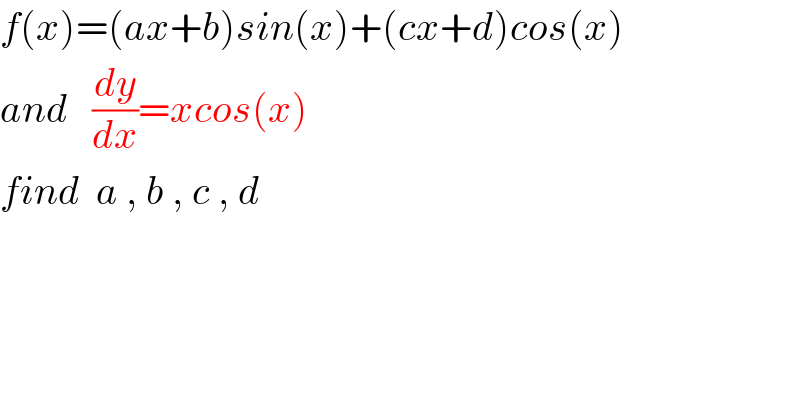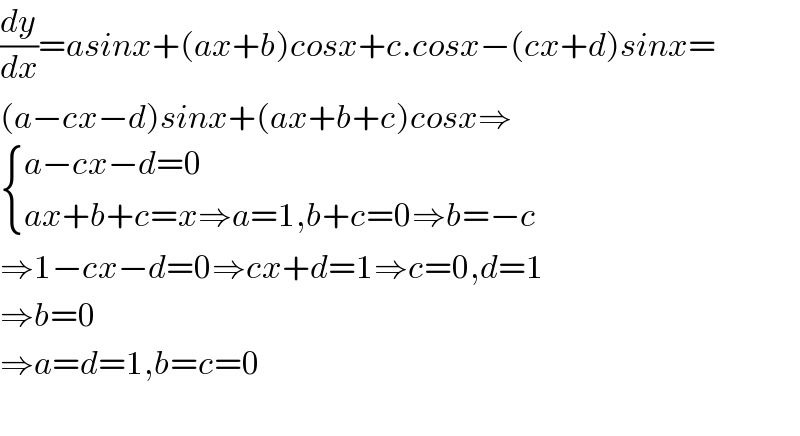
Question and Answers Forum
Question Number 72250 by aliesam last updated on 26/Oct/19

Commented by kaivan.ahmadi last updated on 27/Oct/19

Commented by kaivan.ahmadi last updated on 27/Oct/19

| ||
Question and Answers Forum | ||
Question Number 72250 by aliesam last updated on 26/Oct/19 | ||
 | ||
Commented by kaivan.ahmadi last updated on 27/Oct/19 | ||
 | ||
Commented by kaivan.ahmadi last updated on 27/Oct/19 | ||
 | ||